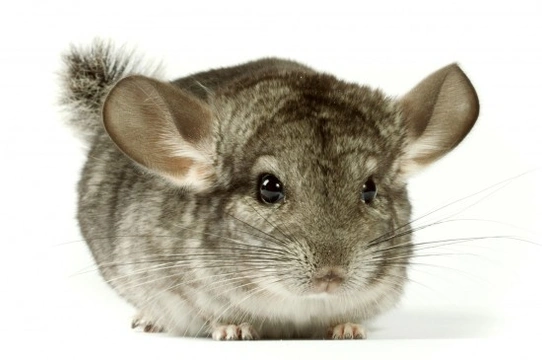
Making Sure Chinchillas Stay Happy & Healthy
Chinchillas are lovely little creatures and far more intelligent than most people give them credit for. Not only do they boast wonderfully soft fur, but if enough time is spent training them, they can be great fun to be around. However, interacting with a pet chinchilla means training them at the same time of the day in order to get the best response out of these small rodents. This is because chinchillas are real creatures of habit with a powerful inbuilt alarm clock- in short they really like a routine in their lives to stay happy and healthy.
However, there are certain conditions that chinchillas are prone to suffer from and which you should keep an eye out for because the sooner you pick up on a health issue, the easier it usually is to treat. Some vets recommend a twice yearly visit to the surgery to carry out routine tests which is particularly important during the first year of a chinchilla's life.
Teeth Issues are Common
One of the main health issues often associated with chinchillas is the condition of their teeth which can grow anything up to 10 inches in any one year. All too often their teeth become misaligned which some people believe could be due to a genetic problem whereas other people think it is more likely due to them being fed an incorrect diet and one that is lacking in calcium/phosphorus or where the ratio between the two is incorrect.
It would be fair to say that teeth issues in chinchillas are more than likely to occur due to a combination of things which includes being fed an incorrect diet and genetics, but for whatever reason, it is really important to keep a close eye on your pet's teeth and if necessary a quick trip to the vet might be in order to have them expertly trimmed.
If their teeth are too long or do not line up correctly, your pet will start to drool which is a sure sign of a problem. They will lose weight rapidly which is why having their teeth regularly checked and trimmed when necessary is so important. Chinchillas are only very small creatures and don't have the kind of reserves other animals boast which means when they lose even a little weight it can have a dramatic effect on their overall wellbeing.
The Dangers of Lead Paint
Another real concern for anyone who keeps chinchillas as pets is the fact that many older houses and especially properties that were built before the sixties were decorated using lead paint. Chinchillas just adore gnawing at everything and anything they come across which includes any painted wood. If they ingest paint that contains lead, it can prove deadly as lead paint is highly toxic to them.
The other thing you need to bear in mind is the type of feed bowl you place in their environment because anything made out of plastic could be a problem. Your pets will chew away on plastic food bowls and may well end up swallowing damaging shards of plastic and the same can be said of water bottles. It is far better to use ceramic feed bowls and to shield water bottles so your pet cannot get at them to chew on.
Enteritis – Intestinal Issues
When fed an incorrect diet, chinchillas are very susceptible to a condition known as enteritis. However, overcrowding and a dirty environment may also contribute to them suffering from the condition which is not only very painful but serious too. If their diet has too many carbohydrates in it or not enough fibre, the level of friendly bacteria they should have in their gut becomes unbalanced and this lets nasty bacteria like E.coli, giardia and salmonella take hold and as such causes all the damage.
The problem is that when a chinchilla develops enteritis, because they are such small creatures, as previously mentioned they just don't have the sort of reserves to fall back on. In short, it is often very hard to treat chinchillas when they suffer from enteritis.
If your pet gets the runs, it is important to trim or clip the hair around the bottoms to help keep them as clean as possible. You would then need to discuss your pet's diet with the vet because the chances are you are feeding them one which is just too rich for them to cope with or one that does not contain enough fibre in it.
Heat Stroke
Another condition which you have to carefully monitor during the hotter summer months, is heat stroke which chinchillas are very prone to suffer from. You need to bear in mind their natural habitat is the Andes Mountains where the ambient temperature is cool and dry. You should never place their cage near a window or in direct sunlight as this may well have a very adverse affect on their health and see them develop heat stroke.
Conclusion
Chinchillas do make wonderful and fascinating pets, they are inquisitive, clever and masters when it comes to escaping out of their cages. This is why it's always worth investing in a good quality cage from the word go and one which is large enough for them to have a wheel and lots of toys in. If they are kept is an interesting and clean environment, a well cared for chinchillas can lead long and happy life. Regular health checks at the vet are essential especially if it's the first time you've kept a chinchilla or two as pets with the first year being the most crucial.



